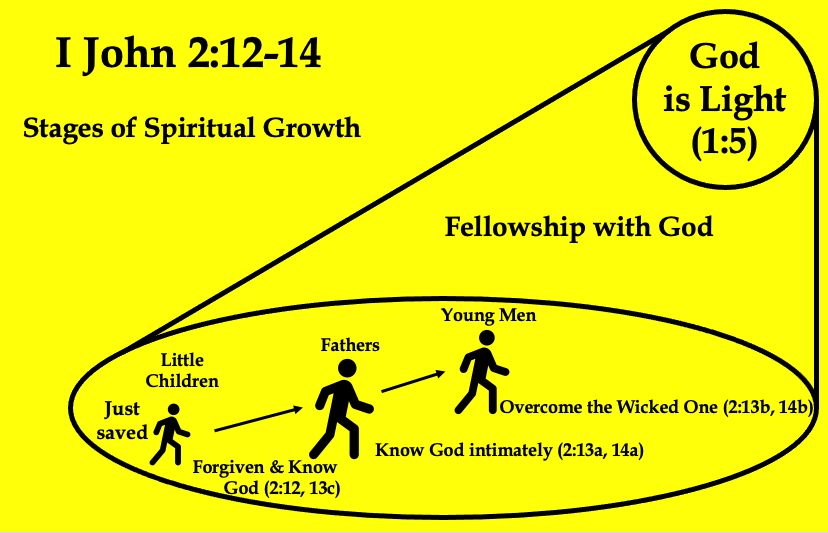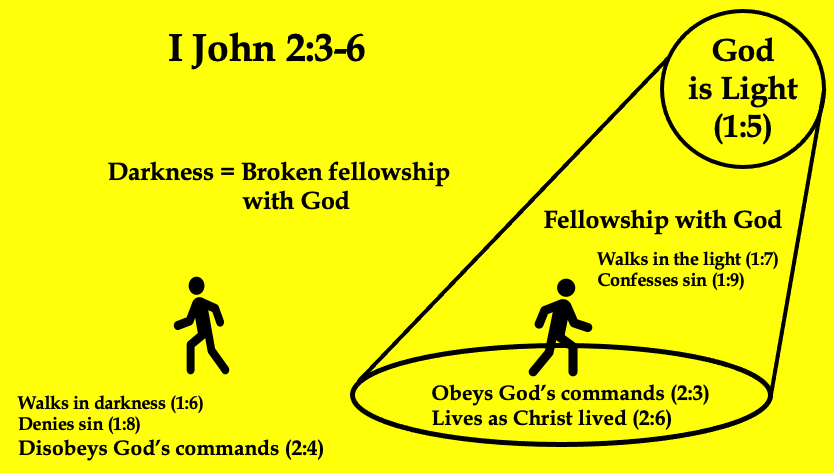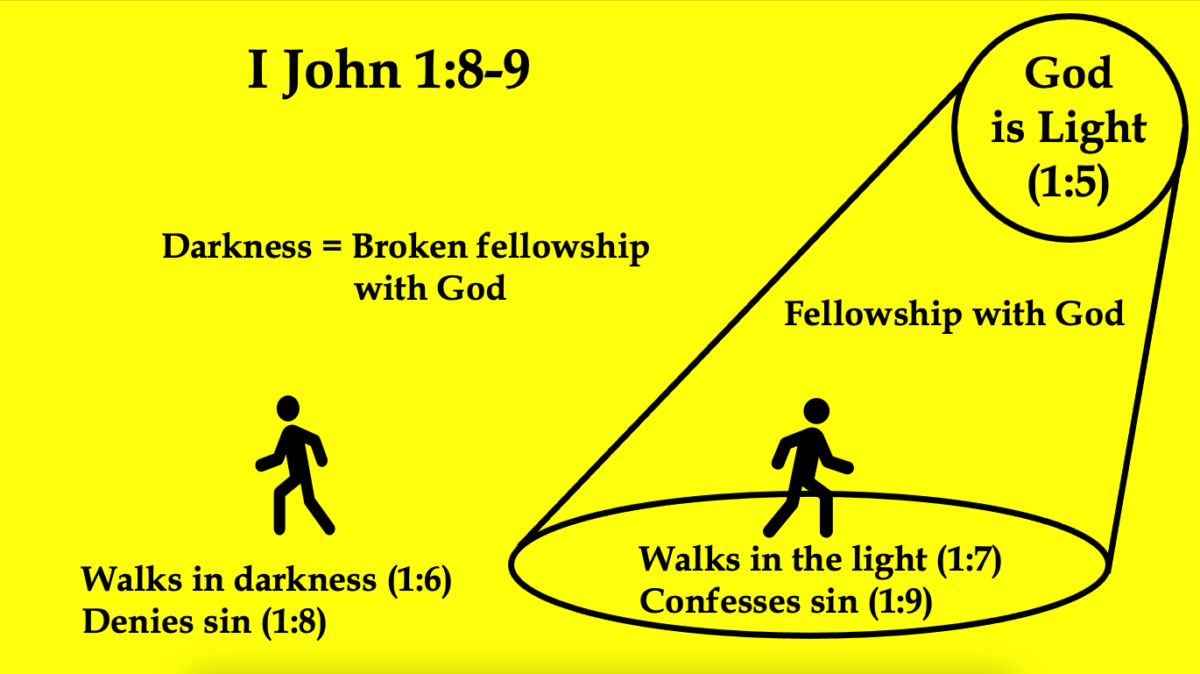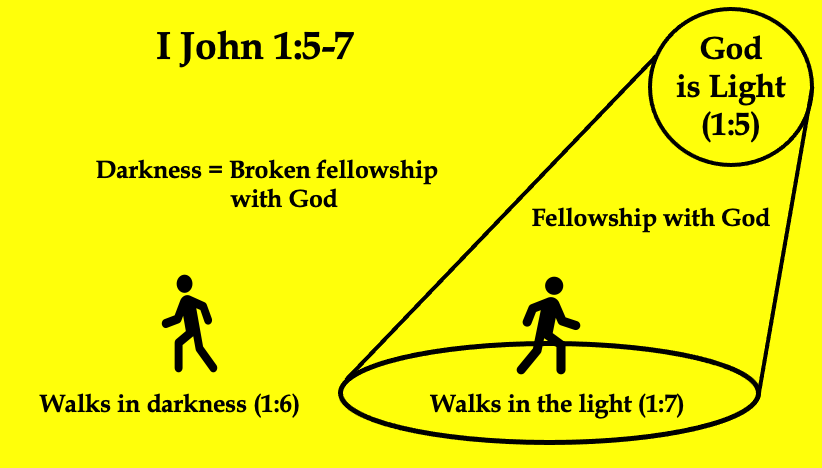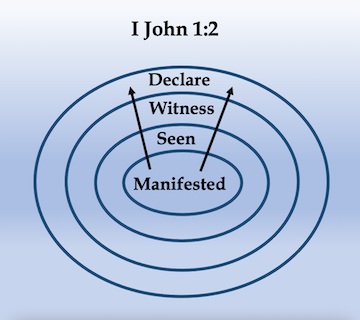“He who loves his brother abides in the light, and there is no cause for stumbling in him.” I John 2:10
When we first returned to the USA from the Philippines in February 2020, the Coronavirus was not the only pandemic to deal with. There was also a pandemic of hate emerging.
People expressed extreme dislike toward those who differed with them about COVID-19 and how to manage this public health crisis (i.e., mask wearing, contact tracing, whether to get a vaccine, etc.). Could people trust scientists and policy makers to make decisions based solely on facts? The erosion of trust fueled pandemic frictions.
Racial tensions escalated after the tragic murder of George Floyd during his arrest by Minneapolis police officers in May of 2020. 1 While most of the protests associated with the Black Lives Matter (BLM) movement (and others) following Floyd’s murder were peaceful and nondestructive, several protests involved destruction of property, looting, arson, and the death of innocent lives across the country. 2
With it being an election year, more hatred was expressed toward those with differing political views. This growing hostility toward political opponents focused on their moral repugnance, not their different views on the economy, foreign policy, or the role of social safety nets. 3 Violent political protests in America not only destroyed property, but human lives as well in the name of politics. 4 Other countries also experienced substantial political unrest including Belarus, Bolivia, Brazil, Bulgaria, Israel, Kyrgyzstan, Malawi, Nigeria, Peru, Serbia, Sudan, Uganda, and Venezuela. 5
Those of us who spend a lot of time in church might say, “Well, that is the world. We can expect such things from the unsaved population. But surely hatred is not experienced in the church, right?”
As I read the book of I John, I believe the apostle John would say that even Christians can get caught up in hating one another. We may not destroy one another’s property, but we can destroy each other’s peace of mind and reputation. And while the average Christian may not admit to having any hatred toward a fellow believer, I believe the apostle John would say that hatred toward another Christian can be one of the greatest barriers to our fellowship with God and one another.
All sin is a barrier to fellowship with God. But hating another Christian is one of the most difficult sins to deal with for the following reasons:
1. Satan targets the relationships of Christians because he knows that Christians living in unity with one another is one of the powerful expressions of the image of God (Gen. 1:26-27; John 17:20-23; Ephes. 2:14-18; 3:1-7; 4:1-32). The Devil seeks to deceive Christians to deny their hurts and refuse to forgive one another (cf. 2 Cor. 2:10-11; Ephes. 4:25-32). As the father of lies (John 8:44), Satan tells an offended believer, “Good Christians don’t get angry, they just get even,” and other lies to keep them from being reconciled. If we are going to overcome hatred toward other Christians, we must realize our battle is not with flesh and blood, but with Satan and his demonic armies, and therefore we must wear the whole armor of God (Ephes. 6:10-18).
2. Christians have higher expectations of other believers and themselves. As a believer in Christ, you may not expect non-Christians to act like Jesus, but you do expect other followers of Christ to act more like Him since they have God the Holy Spirit living in them and His Word to direct their lives. But when they don’t resemble Christ (or your image of Christ), you can easily get angry with them. Or you can take advantage of them, thinking they will easily forgive you or accept you if you do mess up. Either way, this can create more tension between fellow believers in Christ. The higher our expectations of one another, the more likely we are to be disappointed or offended. This can also make it difficult to admit when we are offended or have offended someone. We don’t want to be vulnerable with other believers because there is more risk involved. What will they think of me if I tell them I was offended by them? Can I trust them to keep this confidential? Will they think I am too sensitive or ungodly if I talk to them about my hurt feelings or my anger? A third reason why resolving hatred toward another Christian is difficult is because…
3. Hatred toward other Christians is easy to justify. After all they hurt me unjustly. There is no defense for what they did. The Christian father abused his child. The believing husband selfishly deserted his wife and kids. The Christian partner cheated his brother out of the company. The Christian sister lied to others about her conflict. Carrying the burden of hatred toward other Christians is not the way God wants us to live on earth. We can choose to live with hatred or with healing. But if we choose to hate another brother or sister in Christ, we cannot claim to be close to God. 6
In I John 2:3-6, the apostle John emphasized obedience to Christ’s commands as a test of intimate fellowship with the Lord. It is natural to ask what commands did John have in mind? In verses 7-11 the apostle will answer this question.
“Brethren, I write no new commandment to you, but an old commandment which you have had from the beginning. The old commandment is the word which you heard from the beginning.” (I John 2:7). John wrote that if a believer claims to “abide in“ Christ, he must live as Jesus did (2:6). When speaking of God’s commandments and a Christlike walk, John was not speaking of anything new. This is not a “new commandment” but an “old commandment” which his readers “heard from the beginning” of their Christian experience.
The “old commandment” was taught by Jesus years before when He said, “A new commandment I give to you, that you love one another; as I have loved you, that you also love one another.” (John 13:34). 7 To walk as Jesus walked is to walk in love toward other believers. It is “old” in the sense of being no new responsibility and having no new content. Whatever new interpretations the antichrists (I John 2:18-19) were trying to add to Jesus’ original command to love one another, John reminds his readers that their responsibility was to obey the original command they “heard from the beginning” of their Christian experience (I John 2:7). 8 Throughout the centuries, people have tried to add “new” ideas or meanings to God’s Word to avoid responsibility. But Christ’s command has not changed since Jesus first spoke it.
From another point of view, the commandment spoken of in verse 7 as being “old,” can also be called a “new commandment.” John writes, “Again, a new commandment I write to you, which thing is true in Him and in you, because the darkness is passing away, and the true light is already shining.” (I John 2:8). Loving one another as Christ loved us is “new” because it belongs to a new age that “is already shining.” Christ’s incarnation brought a light into the world which can never be extinguished 9 (John 1:4-5 9; 8:12).The phrase “is passing away” (paragō) is also used by John in I John 2:17 which speaks of the darkness of the world being morally at odds with God the Father. Thus, John is saying the “old” moral darkness of this world is temporary. The “new” reality that will replace it is “the true light” which “is already shining.” This truth was fully revealed through Christ’s love for the world (John 3:16) and is being revealed today through the love of Christians for one another. But the day is coming when this love will shine forth without any hindrance in Christ’s coming Kingdom (cf. 2 Peter 3:13). 10
As Christ’s disciples (including us) obey the command to love one another as Jesus loved us, this command has the character of “truth” both “in” us as we do it and “in” Christ Who gave it. This “truth” was manifested “in” our Teacher (Jesus) as He obeyed His heavenly Father and now “in” those who obey Christ. When we love one another as Jesus loved us, we give others a glimpse of the new age of love to come which is in stark contrast to “the darkness” of hatred all around us. The world does not know this love. It is not a sign of a Christian’s salvation, but of his or her fellowship with Christ, because Jesus said, “By this all will know that you are My disciples, if you have love for one another.” (John 13:35). Loving one another as Christ loved us is a condition for discipleship, not salvation. 11 It is necessary to have fellowship or closeness with Christ.
The world does not understand the love of Jesus Christ. It is a love that offers forgiveness instead of vengeance when you are wounded. Christ gave us this command “in a Middle Eastern world which only understood an eye for an eye and a tooth for a tooth. They had been taught to love their neighbors but hate their enemies. The concept of turning the other cheek and loving their enemies was completely foreign to them.
“The modern problem between the Jews and the Arabs in Israel did not begin with the Jews taking the lands from the Arabs in 1948. At first the Jews tried to purchase land. Sir Moses Montefiore bought land in 1855 for Jewish settlers at Safed, just north of the Sea of Galilee. Then in 1884 Sir Rothschild bought more land for the S. Russian Jews near Ekron. The Jews were trying to escape false accusations brought against them in Russia, Romania, and Bulgaria that they were using the blood of Christian children in their Passover bread. But before 1900 ever rolled around there were attacks against the Jews by the Arabs in settlements around Jaffa and Tiberias.
“Larry Collins’ book O, Jerusalem, tells how the hatred between these groups escalated until wholesale slaughters of Jewish and Arab villages took place, with raping and castrating on both sides in order to increase the humiliation of the victims. The conflict which continues today knows nothing of the love of Christ. It is a land controlled by Satan and his minions of darkness. Their only hope is the love of Christ.” 12
As we see the pandemic of hate increasing around the world today, Christ’s love can shine brightly through Christians who love one another as Jesus loved them. But why is it so seldom we see this kind of love? It is because Christians, like the world, can be vulnerable to the darkness of hate.
John writes, “He who says he is in the light, and hates his brother, is in darkness until now.” (I John 2:9). The Christian who says, “he is in the light” as God is in the light (1:7) “and hates his brother, is” living “in darkness.” One cannot be sharing “the light” with God if he is hating his Christian “brother.”
“The opposite of love is hate. The opposite of light is darkness. Just as loving each other opens the floodgates of fellowship, so hating one another closes them. Thus, the biggest barrier to deep fellowship with God is to hate one’s brother.” 13
Those who think I John provides tests for eternal life would say this person who hates his brother is not even a true Christian because loving your Christian brother is proof that you are saved. This understanding is unacceptable for the following reasons:
1. The book of I John provides tests for a Christian’s fellowship with God (1:3-7). The proof that we are in fellowship with God is our love for one another (2:3-11).
2. The phrase “his brother” (2:9, 11) could refer to an unsaved person hating his physical kin, but since he has no spiritual kin, he cannot hate his spiritual “brother.” It is more consistent with John’s purpose in writing I John (fellowship with God and other Christians) to understand that he is talking about a Christian’s love for another Christian “brother” (cf. “that you also may have fellowship with us” – 1:3; “we have fellowship with one another” – 1:7).
“If John thought that no Christian could hate another Christian, there was no need to personalize the relationship with the word ‘his.’ But the opinion, held by some, that a true Christian could never hate another Christian is naive and contrary to the Bible and experience. Even so great a man as King David was guilty of murder, which is the final expression of hate. John was warning his readers against a spiritual danger that is all too real (cf. 1:8, 10). And he was affirming that a Christian who can hate his fellow Christian has not genuinely escaped from the darkness of this present passing Age. To put it another way, he has much to learn about God and cannot legitimately claim an intimate knowledge of Christ. If he really knew Christ as he ought, he would love his brother.” 14
“If the Bible taught that feelings of hatred were a sure sign of an unsaved condition, then virtually no one in the whole church would be saved! But the Bible does not teach this.” 15
3. In the context of I John 2:3-11, John has in mind Christ’s command (2:5-8) to love one another as He has loved them as a proof of discipleship (John 13:34-35). John’s focus is on Christians loving one another (see especially I John 4:20-5:1). The term “his brother” must also be understood in this Christian sense. 16
The phrase “until now” (2:9) implies that this condition can end. 17 A Christian does not have to live in the darkness of hate. He or she can return to the light of God’s love. Look what happens when a Christian loves another Christian: “He who loves his brother abides in the light, and there is no cause for stumbling in him.” (I John 2:10). First, we see that when a Christian “loves his” Christian “brother” he “abides in the light” of fellowship with God. So, he is not just “in” the light, but he “abides” there. We learned last time that the Greek word for “abides” (menō)is a favorite term of John’s for fellowship with God and other Christians. By loving God and others as Christ loved, he is walking “as He walked” (2:6). The loving Christian is living “in the light” of the new Age which has dawned in Christ (2:8). He is enjoying close fellowship with God and other believers.
Second, the loving believer has “no cause for stumbling in him.” When a believer abides in Christ by obeying His command to love one another, he does not trip himself or other Christians up to fall into spiritual danger. This suggests that hatred is a kind of internal stumbling block that can lead to disastrous spiritual failures. 18 Grudges hurt us more than anyone or anything else. The word “stumbling” (skandalon) refers “to a trap or a snare… whatever ensnares a person in sin. In the person who loves his brother there is no such trap. This does not mean that this person is sinless (see 1:8), but rather that in walking as Christ walked, he does not create an inner spiritual condition by which he can be ensnared in sin. 19
Hatred sets us up for the entrapment of sin. Sinful words or behaviors can often spring from hatred. Such disastrous results are avoided by the believer who loves his Christian “brother.”
“But he who hates his brother is in darkness and walks in darkness, and does not know where he is going, because the darkness has blinded his eyes.” (I John 2:11). Living in the darkness of hate produces terrible consequences for the believer in Jesus Christ which include:
- “is in darkness.” The unloving Christian is in spiritual darkness. His fellowship with God is broken. He is living in a sphere where God is not (1:5).
- “walks in darkness.” He is living in darkness and is unable to see the obstacles ahead of him. He may not see the damage and division his hatred will cause in his relationships with others.
“Like a man wandering aimlessly in the dark, he faces potentially grave dangers.” 20
- “does not know where he is going, because the darkness has blinded his eyes.” Living out of fellowship with God results in a loss of direction. Our hatred blinds us to where our lives are going. The farther we move away from the Lord, the less awareness we have about the direction our sin is taking us. For example, in 2 Samuel 11 when King David sought to cover up his sin of adultery by trying to get Bathsheba’s husband, Uriah, to sleep with her, Uriah would not go down to his house. Then David made him drunk. But still Uriah would not sleep with his wife. So, David finally had him killed in battle. Each step that David took led him farther and farther away from the Lord. Sin blinds us and makes us unaware of where our lifestyle will lead us. This is especially true of our hatred for other Christians.
Back in the 1990’s when we were living in southern Kansas, my family and I went to northern Oklahoma to the Alabaster Caverns. When we took a guided tour into one of the caves, at about a quarter mile inside they turned off the lights so we could experience total darkness. I think (please don’t quote me on this) the tour guide mentioned that a person who lives in total darkness for three days will be almost totally blind when he first comes into the sunlight. But eventually his eyes will adjust back to living in the light. If you go to an afternoon movie matinee for a couple of hours and then walk back into the sunlight outside, it is painful at first to be in the light.
The longer we live in sin, the harder it is to get back in the light. We may not want to let go of our bitterness and resentment toward another Christian who has deeply hurt us because then we will have to face our responsibilities to heal and grow.
You may wonder what is this hatred of which John talks about? How do I know if I have it? Anderson lists the different looks of hatred: (bold print added). 21
1. Cold Indifference—this is what we do to people who hurt us. We give them the cold shoulder. We have no intention of giving them the time of day until they come to us and seek an apology for what they have done to hurt us…
2. Vengeance—oh, we have lots of ways to do this, don’t we? Often this manifests itself in Christians as passive-aggressive behavior. She hurt me, so I won’t take out the trash, help with the dishes, or give her any verbal or physical affection.
3. Unforgiving Spirit—how easily this barb gets under our skin. Have you been hurt? Has someone in your past rejected you in such a way that you still hurt when you think about it? Do you become critical of people in your past the minute their names are mentioned? Have you worked hard all your life not to become like your parents? Are there people in your past upon whom you would enjoy taking revenge? Have you made a pastime out of scheming about how you could get back at them or embarrass them publicly? If you can say yes to any of these questions, then you wrestle with an unforgiving spirit. 22
4. Bitterness (Heb 12:15)—usually beneath an unforgiving spirit is a root of bitterness which Hebrews warns can defile many of those around us and keep us from enjoying the forgiving grace of God. Robert Lewis in his series called Quest for Authentic Manhood challenges every man to look for what he calls the Father Wound and the Mother Wound. According to him an early wound in our lives often explains much of the dysfunction in our adult lives when it comes to personal relationships. 23
5. Hatred has any number of different looks. These are just a few. John makes this much clear. A believer cannot know God’s will for his life while he walks in hatred. He is blind to God’s path for his life. He must be, for God’s path leads him to the brother/sister he hates. Forgiveness leads him back to the light. Indirectly, that’s what verse ten is telling us.”
How does a Christian return to the light if he has been walking in the darkness of hate? God gives us advice on how to resolve our anger in Psalm 4:4-5. The apostle Paul quotes from Psalm 4:4a when he writes, “Be angry, and do not sin.” (Ephes. 4:26) when he is talking to believers about not grieving the Holy Spirit with their communications toward one another (cf. Ephes. 4:25-32). Psalm 4:4-5 teach us some important principles for dealing with our anger that will help us return to the light:
1. Admit and feel your anger (“Be angry and do not sin” – 4:4a). Anger is usually a secondary emotion. The primary emotions anger seeks to protect us from are fear or hurt. For example, when Jesus was “grieved” (hurt)by the religious leaders’ hardness of heart toward a man with a withered hand, He responded with anger toward them (Mark 3:5).
The feeling of anger is not wrong in and of itself. Even God feels anger (cf. Exod. 4:14; Num. 11:10; Deut. 7:4; Mark 3:5; John 2:13-16; 3:36; Rom. 1:18; 12:19; Col. 3:6; Heb. 3:11; 4:3; Rev. 6:16; 19:15; et. al). What we do with our anger can be sinful. When we admit our anger, we begin to take control of it.
It is important to use “I feel…” statements which take responsibility for our own anger. Example: “I feel angry when you…” But spiritual perfectionism says, “I’m not angry.” Somehow Christians are not comfortable admitting their deep hurt and anger. Perhaps it is due to the perfectionism that is taught in churches today.
Shame-based statements use the word “You.” Example: “You make me feel so angry!” The last two examples do not honor what God is saying here – “Be angry and do not sin,” because they do not acknowledge or take responsibility for one’s own anger. You could insert any emotion for the word “angry” in this verse. When we admit our hate or hurt, we begin to take control of it. If we do not face our pain in full, we cannot be fully healed. A superficial acknowledgment of our pain will only lead to a superficial forgiveness and healing of our wounds.
But if we are to be more like Jesus Christ, we can learn to admit our anger and release it to God, so He can use it the way He intended – to accomplish His righteousness (cf. Mark 3:5; John 2:13-16; James 1:19-20). If we refuse to address our anger God’s way, it will result in more brokenness in the body of Christ because we are giving the devil an opportunity to lead us into greater sin (cf. Ephesians 4:26-27). We are walking in the darkness which will lead to more destruction in our relationships with others. But if we do deal with our anger God’s way, we can experience what David did, “I will both lie down in peace, and sleep; for You alone, O Lord, make me dwell in safety” (Psalm 4:8).
2. Talk to the Lord until you can be still (“Meditate within your heart on your bed and be still” – 4:4b; cf. 4:3). After we have identified our anger, we can process it by talking to the Lord. The word “meditate” (’im·rū) means “to utter, say” (4:4b). 24 In the context David is talking to the Lord (Psalm 4:3). As we talk to the Lord, He can help us identify the source of our anger. Is it our own selfishness, hypersensitivity, or perfectionism? Or is it because we have been wronged?
3. Do what is right which includes forgiving others and yourself (“Offer the sacrifices of righteousness” – 4:5a). Sacrifices were offered in the Old Testament as a means of forgiveness (cf. Hebrews 9:22). As God shows us the source of our anger, we can seek forgiveness if we were being selfish or perfectionistic (I John 1:9) or we can extend forgiveness to those who have wronged us (Ephesians 4:32).
Jesus taught, “For if you forgive men their trespasses, your heavenly Father will also forgive you. But if you do not forgive men their trespasses, neither will your Father forgive your trespasses.” (Matthew 6:14-15). Forgiveness is so important because it is connected to God’s forgiveness of us. I cannot enjoy fellowship or closeness with God the Father if I am not willing to forgive those who have hurt me. Being unforgiving connects us to our past hurts and makes it difficult to fully enjoy the blessings of our relationship with God and with other people in the present.
One of the ways we can know we have not forgiven someone is we keep rehearsing bitter and defensive thoughts toward those who have hurt us. We keep going “back to court” in our minds with all the things we wish we had said or want to say to them. 25 God invites us to release “from the heart” the hurt others have caused to us. Forgiveness requires the cancelling of a debt (cf. Matthew 18:21-35). Perhaps the person who has hurt us owes us an apology, justice, money, repentance, restoration, suffering, understanding, etc. 26 God wants us to cancel the debt they owe us.
I am learning that there are three things that can hinder me from forgiving others: judgments, vows, and false beliefs. 27When someone hurts us, we can hold on to judgments about them out of fear. We may judge their motives and try to read their minds. We tell ourselves, “He or she is evil, selfish, and does not care about me or love me.” Christ warns us about making such judgments (Matthew 7:1-2). These judgments can cause heart wounds that keep us from healing and growing. When we refuse to forgive that person, we can bind ourselves to the person we are judging and become more like that person. It is important to repent of our judgments and ask God to release the person and ourselves from the consequences. 27
Not only do judgments about our offenders hinder us from forgiving them, but so do the vows we make. Jesus opposed the practice of distorting vows so they could convey or conceal a lie (Matthew 5:33-35). We can make inner vows to survive the hurts we have suffered. For example, when a person I trusted hurts me, I may make an inner vow that says, “I will never trust anyone again!” Or “If I need others, they will take advantage of me!” These types of vows can become self-curses that result in isolation and loneliness, which cause us even more pain. These inner vows can often become subconscious and do not disappear with time. They are like a contract that must be renounced or broken. It is important to ask God to forgive us and break these vows we have made.28
False beliefs or lies can also prevent us from forgiving others. We may tell ourselves, “If I forgive them, they will get off the hook and there will never be any justice.” But the truth is, only God knows what is just (Romans 12:19). Or “If I forgive, I will become vulnerable to them again.” The truth is that just because you forgive them does not mean that they are safe, and you must trust them again (Matthew 18:15-18).
If you are struggling with hatred because of unforgiveness, take some time today to ask God to reveal to you the people who have hurt you. You may want to start with those closest to you (e.g., a parent, spouse, sibling, child, close friend, etc.). What wound did he or she cause to you? (e.g., abandoned, abused, betrayed, criticized, lied, neglected, rejected, etc.).
What are the judgments or things you believe about them? (e.g., they are evil, lazy, selfish, stupid, weak, didn’t love me, didn’t care for me, etc.). Repent of these judgments and ask God to release the person and yourself from the consequences (Matthew 7:1-2).
What vows did you tell yourself to survive the wound? (e.g., “I don’t need or trust anyone,” or “whatever I do, it won’t be enough,” or “all men/women are ______,” etc.). Renounce and repent of these vows, asking God to forgive you and to break them.
What effect did the wound have on you (How did you cope)? (e.g., anger, addiction, codependency, depression, food, isolation, stress, workaholism, etc.).
What debt do they owe you? What would they have to do for you to trust them again? (e.g., apologize, change their behavior, justice, make restitution, money, repent or seek your forgiveness, etc.). Talk to the Lord, asking Him to make you both willing and able to cancel their debt.
What false belief or lie is keeping you from forgiving them? Say the following false beliefs below to yourself to see if they feel true. If they do, then focus on the true beliefs until the false beliefs no longer feel true.
False belief: If I forgive them, they will get off the hook and there will never be any justice.
True belief: Only God know what is just (Romans 12:19).
False belief: Forgiveness means I must pretend that nothing ever happened.
True belief: Forgiveness is not denial. You must tell yourself the truth about what they did and how it affected you to really be able to forgive from the heart (Matthew 18:35; John 8:32).
False belief: If I forgive, I will become vulnerable to them again.
True belief: Just because you forgive them doesn’t mean that they are safe, and you must trust them again (Matthew 18:15-18).
False belief: My unforgiveness punishes them and is justified because I am right; they will never see their wrong and repent if I let go.
True belief: The truth is, it is God’s mercy and kindness that leads us to repentance. Only He knows what will change them (Romans 2:4; Ephesians 4:24-32).
If you are ready, insert the name of the person you have chosen to forgive into the following prayer of forgiveness:
Father God, Your Word says that to be forgiven, I must forgive. And so, I come to You in the name of Jesus, in obedience and love, and I bring (name) _____ before You. I cancel _____ debt to me (e.g., apology, change of behavior, humiliation, repentance, suffering, etc.). I choose to forgive this hurt against me, and I ask that You not hold these sins against _____ on my account. I release _____ from any desire on my part to see _____ punished. In fact, as You have told me to do, I bless _____ in Your Son’s name, Jesus. You know _____ desires, needs, and hurts. You know what would bless _____. And so, I ask that You pour out Your love and healing to _____ and bring _____ Your highest good, because Your name is Good and Love, and You are not willing that any should perish. Now also, Father, please heal my heart and set me free to love _____ as You do. In the mighty name of Jesus Christ, I pray. Amen.
4. Trust the Lord with the situation (“And put your trust in the Lord” – 4:5b). Many believers struggle with the first two steps the most and skip right over them to forgive and trust the Lord without acknowledging or processing their feelings. But if we do not admit our anger or hurt and turn it over to the Lord, it is very difficult to forgive “from the heart” (cf. Matthew 18:35).
5. If possible, sit down with the one who hurt you and explain what you have been holding inside, and tell them you would like to forgive them.
6. If you cannot sit down with them, forgive them as Christ has forgiven you (Ephes. 4:32). “In Him” is the key. God forgave you “in Him.” You can forgive your brother because of your common position in Him.
7. Don’t confuse forgiving with trusting. You can forgive in a moment based on your common position in Christ, but trust must be rebuilt over time. This distinction has tripped up many people. A Christian wife is commanded to forgive her wayward husband (or vice-versa), but she is never commanded to trust him. He needs to earn her trust. 29
In summary, when a person first gets saved by believing in Christ alone for His gift of eternal life (John 3:15-16), he can enjoy fellowship with God in the light by being open and responsive to what God reveals to him (I John 1:5-2:2). As he learns God’s commands, he can abide in Christ by keeping those commands (I John 2:3-6), especially the command to love one another as Jesus has loved him (cf. John 13:34-35). Failure to obey God’s known commands breaks his fellowship with God and others, plunging him into darkness where God is not (I John 2:7-11).
Prayer: Heavenly Father, we thank You for Your love for us which You demonstrated by giving Your only perfect Son to die in our place on the cross for all our sins so we could receive eternal life freely the moment we believed in Him. Thank You, Lord Jesus, for giving us a new commandment which is to love our brothers and sisters in Christ as You have loved us, extending forgiveness to one another as You have forgiven us. Forgive us for the many times we have been less than loving to one another. Please keep us from the darkness of hate so we may enjoy sharing the light with You and grow to know You more intimately. Please align our thoughts with Yours so Your radical love for us can flow through us to the children of God. In the mighty name of the Lord Jesus Christ, we pray. Amen.
ENDNOTES:
1. Retrieved from Wikipedia article on November 3, 2022, entitled, “2020-2022 United States racial unrest.”
2. Ibid.; cf. May 25, 2021, article retrieved on November 3, 2022, entitled, “A Year of Racial Justice Protests: Key Trends in Demonstrations Supporting the BLM Movement,” from acleddata.com.
3. Retrieved on November 3, 2022, from the October 29, 2020, article entitled, “Why Hatred and ‘Othering’ of Political Foes Has Spiked to Extreme Levels,” at sceintificamerican.com.
4. Retrieved on November 3, 2022, from Lois Becketts’ October 31, 2020, article entitled, “At least 25 Americans were killed during protests and political unrest in 2020,” at theguardian.com; cf. Mike Gonzalez’ November 6, 2020, article entitled, “For Five Months, BLM Protestors Trashed America’s Cities. After the Election, Things May Only Get Worse,” at heritage.org.
5. Retrieved on November 3, 2022, from Benjamin Press and Thomas Carothers’ December 21, 2020, article entitled, “Worldwide Protests in 2020: A Year in Review,” from carnegieendowment.org.
6. David R. Anderson, Maximum Joy: I John – Relationship or Fellowship? (Grace Theology Press, 2013 Kindle Edition), pp. 85-86.
7. Ibid., pp. 86-87; Tom Constable, Notes on I John, 2022 Edition, pp. 39-40; Zane C. Hodges; Robert Wilkin; J. Bond; Gary Derickson; Brad Doskocil; Dwight Hunt; Shawn Leach; The Grace New Testament Commentary: Revised Edition (Grace Evangelical Society, Kindle Edition, 2019), pg. 591.
8. Zane C. Hodges, The Bible Knowledge Commentary Epistles and Prophecy, Editors John F. Walvoord and Roy B. Zuck (David C. Cook, 2018 Kindle Edition), Kindle Location 3634.
9. Ibid., Kindle Location 3643.
10. Hodges, The Grace New Testament Commentary, pg. 591.
11. Anderson, pg. 87.
12. Ibid., pp. 87-88.
13. Ibid., pg. 89.
14. Hodges, The Bible Knowledge Commentary Epistles and Prophecy, Kindle Location 3652.
15. Constable, pg. 41 cites Zane C. Hodges, The Epistles of John: Walking in the Light of God’s Love (Irving, Tex.: Grace Evangelical Society, 1999), pg. 87.
16. Hodges, The Grace New Testament Commentary, pg. 591.
17. Constable, pg. 41.
18. Hodges, The Bible Knowledge Commentary Epistles and Prophecy, Kindle Location 3660.
19. Hodges, The Grace New Testament Commentary, pg. 591.
20. Hodges, The Bible Knowledge Commentary Epistles and Prophecy, Kindle Location 3664.
21. Anderson, pp. 89-91.
22. Ibid., pg. 90 where Anderson acknowledges some questions were taken from Charles Stanley, The Gift of Forgiveness (Nashville: Thomas Nelson Publishers, 1987), pg. 23. Anderson, pg. 90 cites Robert M. Lewis, The Quest for Authentic Manhood (Little Rock, AK: Fellowship Bible Church, n.d.), pp. 10-11.
24. Francis Brown, S. R. Driver, and Charles A. Briggs, A Hebrew and English Lexicon OFTHE OLD TESTAMENT at https://biblehub.com/hebrew/559.htm.
25. Michael Dye, The Genesis Process: For Change Groups Books 1 and 2 Individual Workbook (Michael Dye/Double Eagle Industries, 2012), pp. 123-124.
26. Ibid., pg. 124.
27. Ibid., pp. 126-131.
28. Ibid.
29. Steps 5 – 7 are adapted from Anderson, pg. 91 who acknowledges Charles Stanley, The Gift of Forgiveness: Put the Past Behind You and Give… (Nashville: Thomas Nelson Publishers, 1987), pp. 169-170.

